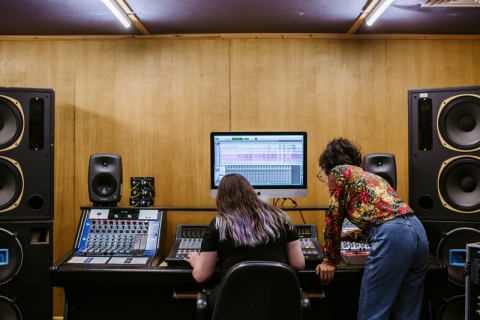

A Research Futures webinar with Professor Samantha Warren
Women continue to be under-represented in, and reluctant to enter technology-driven careers, despite the rhetoric of computers as a democratizing force (Armstrong 2016). This is especially true of the digital-creative industries that remain heavily ‘male coded’, e.g., electronic music/ DJing, games design, animation, and software coding more generally.
In the Key of She is the title of my ongoing (2019-2021) Leverhulme Trust Fellowship. I am undertaking a critical case study of career experiences of female, female-identifying and gender minority electronic music (self)producers in order to shed light on the persistent male dominance of digital-creative cultural production . The music industry recognises it has a gender balance problem with various initiatives to balance festival and gig line-ups, such as the PRS Keychange initiative . When we consider the more technical roles in the industry, things get even more unbalanced. For example, according to the Annenberg Inclusion Initiative, only around 2% of music producers are women (Smith et al. 2019). With electronic music production increasingly being seen as a source of reputational capital for contemporary DJs, if women are not producing and/or releasing their own tracks, they are going to struggle to compete with their male peers (e.g., Reitsamer 2011).
In this seminar I introduce the project, its methodology, and present some emerging findings as well as details of the industry initiatives I am involved with.
